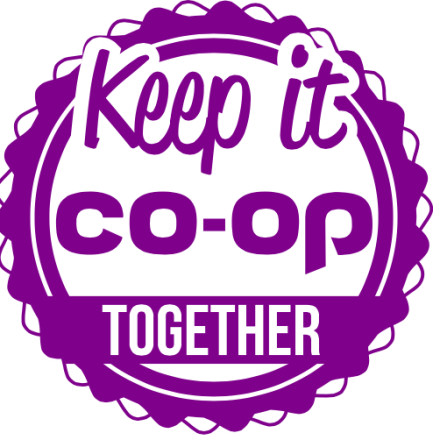
While the Tories’ secretive Black and White Ball was raising millions from big business donors to try to buy the General Election, a much smaller political party has had to ready itself for the cancellation of donations from its biggest business backer.
The business donor, a massive presence on UK high streets, has steadily provided funds to this small party for nearly a century, with the most open, honest, above-board and democratic donations in politics.
But just when nearly everyone is crying out for political funding to be cleaned up, it looks like this exemplary, transparent and democratic relationship between a business and politics could come to an end, a week after the May General Election.
The party is the Co-operative Party and the business is the Co-operative Group, the UK’s sixth largest supermarket chain and a leading player in funerals and insurance, with a turnover of £11bn. It is not owned by city investors, but by its customers. The history of the link between the Co-op Party and the Co-op Group and the way they have changed the face of large sections of the British economy is inspiring and a heritage worth fighting to defend.
As well as having an ownership structure that is about mutualism, not capitalism, the Co-op acts differently from other businesses. It doesn’t always get everything right as the loss of its banking arm showed. Sometimes it can make bad political calls too – as a member I have repeatedly gone to regional and area meetings to argue against its boycott of a number of Israeli companies, but that’s the point, I have some redress and a voice in trying to change the policy. Overwhelmingly it is a force for good. It really does support political and social action, progressive legislation, reform of the market, and until now it has not been squeamish about political representation in Parliament either.
In 1917, co-operative businesses voted at their Congress to establish the Co-op Party, because they recognised that the changes they wanted to see in society wouldn’t happen without political action. Co-ops had been heavily discriminated against by the wartime government, and 107 co-operative retail societies, the predecessors of today‘s Co-op Group, voted to form the party and get MPs elected to represent their cause.
The Party’s first MP Alfred Waterson was elected for Kettering in 1918. Four new Co-operative MPs were elected in 1922, all of whom took the Labour whip. Six were elected in 1923 and five in 1924. In 1927 the Co-op Party agreed an electoral pact with the Labour Party, which has continued ever since. The Co-op Party could be seen as the 4th largest party as there are now 31 joint Labour & Co-op MPs.
This link between co-op businesses and the Co-op Party changed the landscape with legislation on consumer protection – which also helped deal with exploitative retailers who undercut co-ops, credit unions, housing co-ops, the energy market, and more recently setting up supporters’ trusts that now own 185 football clubs, nearly 800 co-operative schools and a credit union for the services.
To throw away this genuine, and successful, lever for changing society would be nuts. Why would the co-op not want a voice in parliament fighting its corner when conventional businesses have the entire Tory party fighting for them? When businesses, especially retailers, want to stand out from the crowd, would any marketing guru advise them to ditch the core attribute which makes them unique?
But that is exactly what the Co-op Group is contemplating.
They want to end nearly a century of political representation for their movement in parliament for the sake of a saving of donations of just £840,000 a year. Of that £840,000 just £98,000 goes from the Co-op Party to Labour CLPs with “Labour & Co-op” MPs, the rest is used to build the Co-op Party itself, run its democracy and provide a policy development function that gives the intellectual ammo and ideas to Labour & Co-op MPs to enable them to pursue legislation that benefits and builds the co-operative movement in the UK.
Just like I support and defend the link between the Labour Party and the trade unions, I support and defend the link between the Co-op Group and the Co-op Party and through it the Labour Party.
The Tories would love to see the joint structures and alliances carefully built up a century ago between the three sections of the working people’s movement – the Labour Party, trade unions and co-op movement – smashed. They would be delighted if the Co-op Group was just a chain of shops with a quirky history and an enhanced loyalty card scheme, not a vibrant part of a political movement. That the Co-op Group is playing into their hands by contemplating axing its link to the Co-op Party is a tragedy, an act of political suicide.
The Co-op Party is fighting back against this proposal. Last Friday they launched the “Keep it Co-op” website.

The website sets out the successes achieved by the Co-op Party on behalf of co-operatives. It asks members to support the positive benefits of the Group’s political link, and to vote to maintain the link at the Co-op Group AGM or in any ballot in advance of the AGM , and to put pressure on Co-op Group Board directors to urge them to keep the link.
I’ve always been proud to carry three cards in my wallet – a Labour Party one, a trade union one, and a Co-op one. I love the fact that when I pop in to the Co-op shop at the end of my road, my purchases are contributing a little bit to political and social change rather than just private profit.
You can sign up at www.keepit.coop and join me in fighting to keep the Co-op Group true to its values and purpose, and linked to a strong political voice in the Co-op Party.



More from LabourList
Andy Burnham manifesto: Greater Manchester mayor reveals three key election pledges in bid for third term
‘Labour should grasp the chance to secure EU visa deal for young workers’
‘How Labour could win a Milton Keynes majority for the first time in decades’